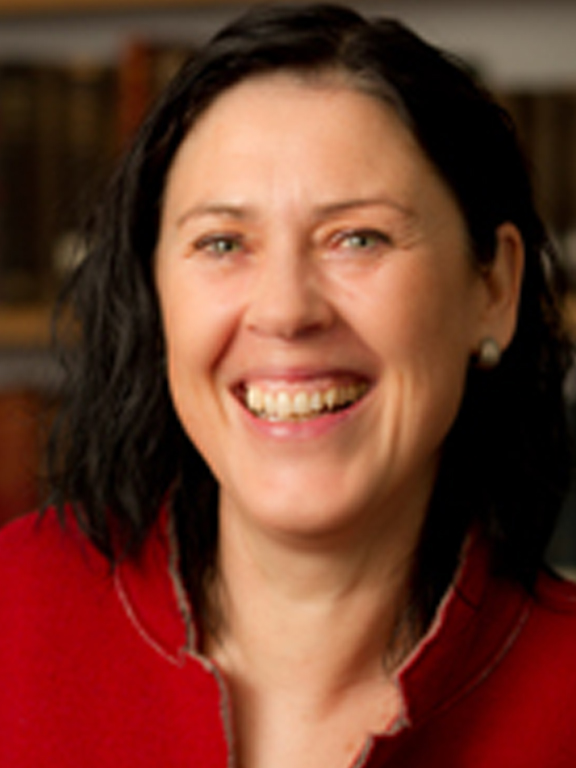The Vocation of Healing

Ulrike Wiethaus, Professor, Department for the study of Religions and American Ethic Studies Program
Course: The Vocation of Healing: Interdisciplinary Perspectives on Culture, Spirituality, and Community.
Number of Students: 25
Term: Fall 2018
Duration: 15 weeks
Instructional Designer: Brianna Derr, Manager of Advanced Learning Projects
Question
What have you learned about wellbeing?
Answer
“True wellness to me is about settling into balance and community in a human world driven by increasing communication complexity and the unpredictable flow of global economic interests. The Hopi have a word for such states of imbalance, Koyaanisqatsi. In the Choctaw language, it is called Haksuba.
Balance and community are our birthright and our deepest wellspring of being; they are patterned in the bodily rhythms of inbreath and outbreath, the symmetry of our body’s shape, and are prefigured in our need to touch and be touched, to speak and to be heard, and to feel and be felt deeply. Moving into balance and community through an exploration of ancient traditions of contemplation to create mindful silence, stillness and spaciousness in a spirit of compassion is one powerful way in which our University can embrace wellness in this time of imbalance. And as Gautama Buddha is said to have taught, it is our mind, individually and collectively, that creates our world.” -Ulrike Weithaus
Project Description
Student teams designed a StoryMapJS in collaboration with the WFU Sustainability Office’s Campus as Laboratory initiative. Each StoryMap highlights a campus site dedicated to environmental sustainability. These sites include Campus Kitchen, Campus Garden, Running Trails, Reynolda Gardens, Tohi Garden, Plant Forward Dining, and Lake Katherine.
Purpose
The purpose of the project is to train students in engaged humanities and public history methodologies with an emphasis on environmental sustainability.
Learning Goals
Learning goals included:
- Understanding more deeply the role of society, culture, and history in creating healthful environments.
- Understanding the social relevance of sustainability
- Identify vital issues in Winston-Salem, regionally, and world-wide (climate change impact).
- Expand competencies in oral, written, and electronic media.
- Develop professional relationships with community partners
- Develop a personal response to sustainability as a life-long journey with social and professional implications.
Role of Academic Technology
The StoryMapJS software was instrumental in completing the assignment, because students had to link team research with geographic data points by creating visually attractive narrative arcs that were informative and appealing to a wider public.
Technology
- StoryMapJS
- Laptop
- Smartphone
Target Skills
Improved proficiency in the following areas were desired target skills:
- Academic research
- Academic writing
- Public professional presentations
- Intercultural competency
- Mindfulness-based communication skills
- Visual literacy
- Skillful use of academic technology
Outcomes & Perspectives
Showcase
Reynolda: Mindfulness & Meditation
Student’s Perspective
Students were motivated to work hard on the project due to its seamless integration of technology and hands-on community engagement work. They clearly enjoyed the semester-long assignment to build and present their StoryMaps.
Instructor’s Perspective
StoryMapJS was an ideal tool to engage students in a creative and scholarly way with environmental and social issues in our community.
Assessment
- Community partner feed-back.
- Successful completion of learning goals and desired skill sets via benchmarks.
- Connect with community partner and introduce technology
- Develop research agenda
- Research
- Community Partnership development & documentation via photos and recordings
- Develop story board with research data, photo database, and recordings
- Test story board with focus group (in class)
- Turn story board into StoryMap
- Test StoryMap draft with focus group (in class)
- Present StoryMap to community partners

